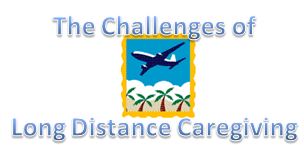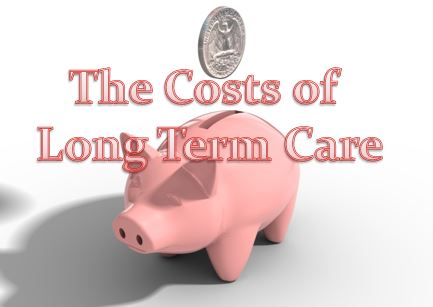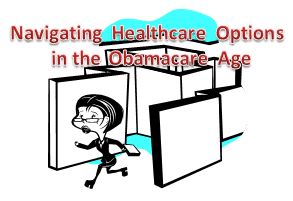What to Expect from Medicare in 2014: Medicare Advice/Analysis
There are big changes coming to healthcare in 2014 related to the Affordable Care Act (“Obamacare”) but less dramatic changes for Medicare recipients. The new state healthcare exchanges will have open enrollment from October 1, 2013 to March 31, 2014 but the Medicare open enrollment periods remain the same as last year (the health exchanges do not apply to Medicare recipients). Here we will outline some of the key information for Medicare in 2014–important dates and the changes you can expect if you are a Medicare recipient. Aging Wisely offers Florida Medicare advice/analysis, as well as help navigating other health insurance and benefits programs like Florida Medicaid and V.A. benefits. Contact us at 727-447-5845 for more information.
The standard open enrollment period for Medicare 2014 is from October 15, 2013 through December 7, 2013. This is the once yearly opportunity to review plans and make changes, such as switching Medicare D drug plans, enrolling in a Medicare Advantage plan or disenrolling from Medicare Advantage and enrolling in a stand-alone Part D plan along with returning to “regular” Medicare. Even if you are satisfied with your current plan, it makes sense to review your options to make sure there is not a more suitable plan for the coming year. Each year plans make changes and your medical situation may have changed as well. In 2012, a study indicated that some 90% of Floridians were in the wrong Florida Medicare plan, many of them paying more than necessary.
There is another annual period from January 1st to February 14th, which is specifically for disenrolling from Medicare Advantage and enrolling back in to regular Medicare and a new Part D plan. This is the only type of change that can be made during that period. There are also many special enrollment periods (SEPs), specific circumstances that may allow you to make changes. These include, for example, admission to or discharge from a nursing home. If you have problems with your Medicare plan or major changes, contact us for help navigating the options.
So what will change for Medicare recipients in 2014?
The “donut hole” (coverage gap in the Part D plans during which you must pay out-of-pocket for your drugs) continues to shrink as part of provisions made a few years back. In 2013 and 2014, you get a 52.5% discount on brand-name drugs in the donut hole; the subsidy for generic drugs in the donut hole rises from 21% to 28% in 2014.
Premiums for Part D plans are expected to remain similar in 2014, with a slight rise in the average cost from $30/month to $31. Other trends in the drug plans, such as increased copays, smaller pharmacy networks or changed drug tiers/coverage, may affect your out-of-pocket costs even if you stay in the same plan. Consider inputting your information in to Medicare’s Plan Compare Tool during the open enrollment period, or getting help from one of our Aging Wisely Patient Advocates in analyzing your best options.
Aging Wisely provides a concise “Medicare Fact Sheet” each year, which outlines the parts of Medicare and the corresponding costs for the year. You can download a copy of the 2013 Medicare Fact sheet here and keep an eye out for our 2014 information as soon as those numbers are released. Generally, there are small premium and deductible increases in each of the areas of Medicare yearly, but we do not expect anything dramatic for 2014.
Don’t forget Medicare now covers many preventative services (at 100%). For more information, check out Medicare’s Guide to Preventative Services.
Warning: Also, be aware that as Medicare plans start advertising, fraud issues are often on the rise as well. You may get false information or someone “phishing” for personal information. Do not give out personal or identifying information. Make sure you understand what you are doing before making changes and consider talking it through with a trusted family member or professional.
For new retirees trying to navigate all the Medicare and other health insurance options or current recipients trying to ensure the best coverage, we offer a Medicare Analysis Package as well as patient advocacy services to deal with specific issues. Contact Sue Talbott, Senior Care Consultant, at 727-447-5845 for questions or to schedule your appointment today!




 We have seen the health and long-term care landscape change drastically over the years already. Consider today’s abundance of rehabilitation, assisted living and home care options. These choices did not exist when many of our grandmothers were caring for their own parents. Having the options is definitely positive, but navigating them proves a challenge for many families. We try to keep you updated with educational resources and specific information that we see affecting our clients. If you are dealing with these issues and trying to navigate how the provisions will affect you, it is worthwhile to contact a
We have seen the health and long-term care landscape change drastically over the years already. Consider today’s abundance of rehabilitation, assisted living and home care options. These choices did not exist when many of our grandmothers were caring for their own parents. Having the options is definitely positive, but navigating them proves a challenge for many families. We try to keep you updated with educational resources and specific information that we see affecting our clients. If you are dealing with these issues and trying to navigate how the provisions will affect you, it is worthwhile to contact a  Popular Downloads
Popular Downloads


 Get Our Newsletter!
Get Our Newsletter! Mission Statement
Mission Statement

